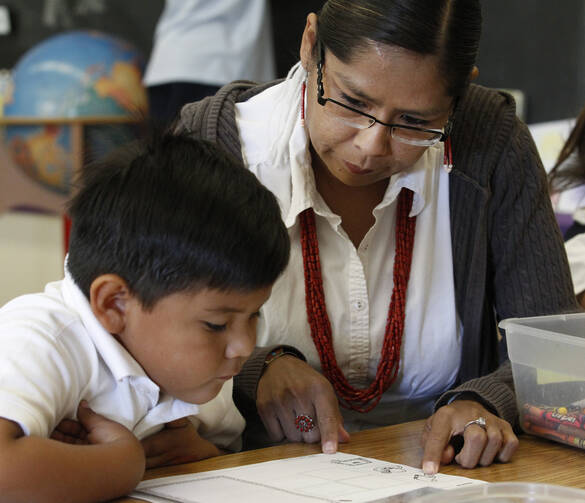Last week, while discussing the Common Core State Standards (CCSS), I wrote that whether "people oppose or support the CCSS, conversations reflect the same assumptions that mark most proposals for education reform. The implicit idea seems to be that if we just had a certain program or idea, some specialized initiative (whether in curriculum, testing, teacher accountability, or budgeting), American education would improve. The adoption or rejection of a particular proposal is seen as decisive."
Last week it was the Common Core, this week it's something else, and the same pattern holds.
Writing in yesterday's Wall Street Journal, Barbara Nemko and Harold Kwalwasser say that "entrance requirements to most colleges of education are too lax, and the requirements for graduation are too low." Moreover, "[e]ducation curricula are almost uniformily out of date and far too theoretical, with minimal classroom-teaching requirements. Too often, these future educators learn to 'teach' math, but they don't necessarily learn how to do the math itself."
How to reform? According to the authors:
Two simple but radical changes could transform teaching in America. First, require aspiring teachers to major in something other than education. Students who want to be math teachers must major in math, for example, and fulfill the same graduation requirements as the school's other math majors. Same for English and science. That alone would improve the quality of teachers enormously.
Next, take state funding for colleges of education and give it to school districts instead. The districts would take on the obligation of teacher training, either doing it themselves or contracting with an outside organization or university. Many districts already train this way with what's called "alternative certification," and research suggests that these programs can be more effective than traditional, college-based programs.
In my experience, some version of these recommendations already holds at many Catholic schools. The Catholic institutions that I have worked at do not require teachers to obtain state certification, let alone major in education. Most Catholic educators I know majored in something that reflected their passion or talent, and they improved their teaching through mentoring programs within the schools they taught at. The colleagues of mine, moreover, who did major in education or fulfill state requirements don't beam on behalf of those programs. They echo the disapproval of Nemko and Kwalwasser.
The larger question, though, is this: what is the essence of superb teaching? Is it susceptible to the 10,000 hour rule (lots of practice), or is it more elusive? I think becoming a great teacher is similar to becoming a great writer. Some people are born to write; others are not. This doesn't mean that great writers don't have to practice; this doesn't mean they don't have to work really hard. We know that even the masters labored mightily to perfect their craft. Rather, it means that there is an inborn capacity that cannot be taught.
Good teachers, like good writers, must practice. They need mentors; they need experience in addressing the thousands of matters that arise in the course of a school day. They do need some training. However, the core of excellent teaching possesses an untrainable element, a formula held not in programs or schools but in the mind of our Creator. For this, there is no major.








